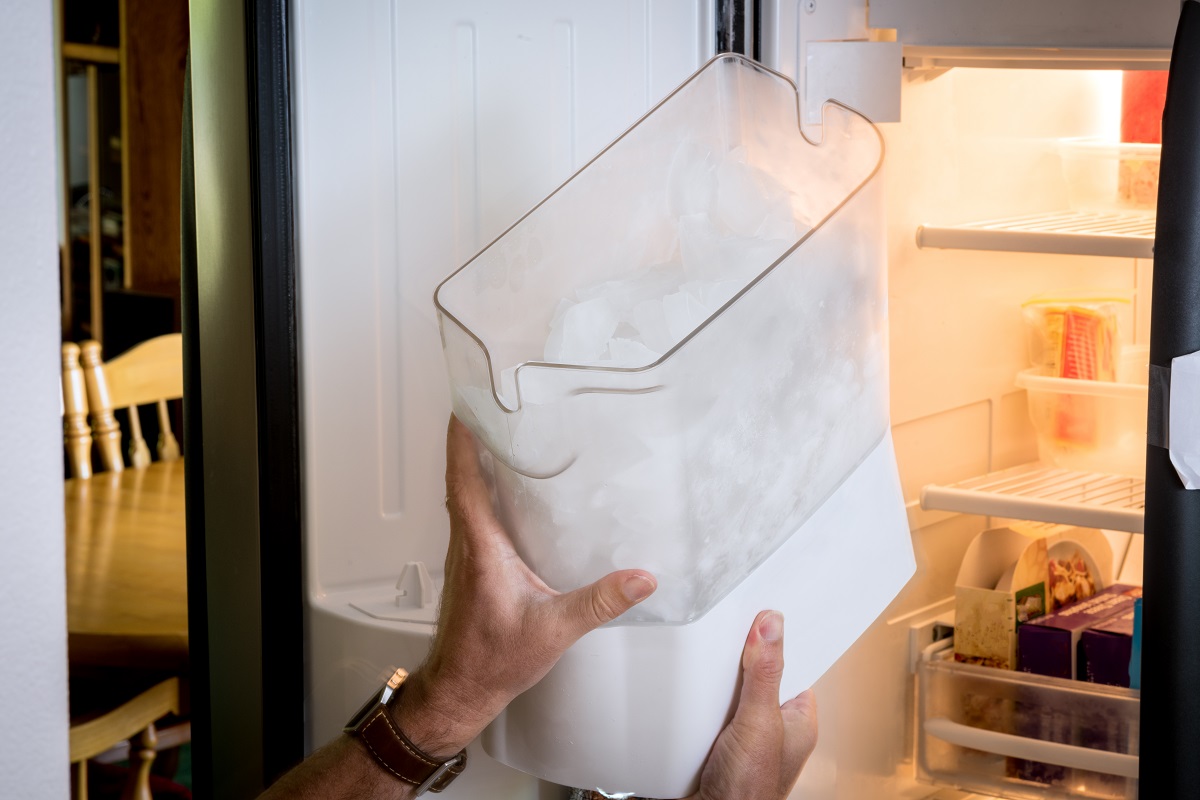

Articles
What Causes Ice Maker To Freeze Up
Modified: October 20, 2024
Learn about the common causes of ice makers freezing up in this informative article. Discover how to prevent this issue and keep your ice maker running smoothly.
(Many of the links in this article redirect to a specific reviewed product. Your purchase of these products through affiliate links helps to generate commission for Storables.com, at no extra cost. Learn more)
Introduction
An ice maker is a convenient appliance that allows you to have a steady supply of ice at your disposal. Whether you’re hosting a party, enjoying a refreshing cold drink, or chilling a sprained ankle, having ice readily available is a luxury we often take for granted. However, there may come a time when your ice maker starts to act up and freezes up, leaving you with a frustrating lack of ice. But what causes an ice maker to freeze up in the first place?
In this article, we will delve into the common causes of ice makers freezing up and how you can prevent it from happening. By understanding the underlying issues and taking necessary preventive measures, you can ensure that your ice maker stays in optimal working condition.
Key Takeaways:
- Understanding the common causes of ice maker freezing up, such as inadequate airflow, faulty temperature control, and water leakage, can help you troubleshoot and prevent this frustrating issue. Regular maintenance and attention to various components are crucial for optimal ice maker performance.
- Implementing preventive measures, including regular cleaning, monitoring water pressure, and ensuring a stable power supply, can help maintain the proper functioning of your ice maker and minimize the risk of freezing up. Remember, a well-maintained ice maker ensures a continuous supply of ice without the frustration of it freezing up.
Read more: What Causes A Refrigerator To Freeze Up
Understanding Ice Makers
Before diving into the reasons why ice makers freeze up, let’s first gain a basic understanding of how they work. Ice makers are typically found in refrigerators and are responsible for producing ice cubes or crushed ice. They are a combination of various components that work together to create and dispense ice.
The process starts with the ice maker taking in water from the water supply line. This water is then directed into a mold where it freezes, forming ice cubes. Once the ice is formed, the mold is heated slightly to release the ice cubes into the storage bin. From there, the ice cubes can be accessed and used as needed.
It’s important to note that ice makers require proper airflow, temperature control, and water supply to function optimally. Any malfunction or imbalance in these components can lead to the ice maker freezing up.
Now that we have a clear understanding of ice makers, let’s explore some common causes of ice makers freezing up.
Common Causes of Ice Maker Freezing Up
Ice makers freezing up can be attributed to various factors. Understanding these causes can help you troubleshoot and resolve the issue effectively. Here are some of the common culprits behind ice maker freezing:
-
Inadequate Airflow: If the airflow to the ice maker is restricted, it can result in the formation of excess frost and ice. This can block the proper functioning of the ice maker and cause it to freeze up.
-
Faulty Temperature Control: A malfunctioning temperature control mechanism can lead to the ice maker freezing up. If the temperature inside the ice maker is too low, the water may freeze more quickly and cause ice buildup.
-
Defective Water Inlet Valve: The water inlet valve is responsible for allowing water to enter the ice maker. If this valve is faulty, it can lead to water leakage or insufficient water supply, resulting in freezing up of the ice maker.
-
Dirty or Clogged Filters: Filters in the ice maker can become dirty or clogged over time. This can restrict water flow and cause the ice maker to freeze up.
-
Overfilled Ice Bin: If the ice bin is overfilled, it can impede the functioning of the ice maker. Excess ice can block the sensors or disrupt the ice-making process, leading to freezing up.
-
Faulty Ice Maker Assembly: A defective ice maker assembly can cause ice to accumulate and freeze up. This can be due to a malfunctioning motor, faulty gears, or other internal component issues.
-
Water Leakage: If there is a water leakage within the ice maker, it can lead to freezing up. The water may not be properly directed into the mold, causing it to freeze in the wrong places.
-
High Water Pressure: Excessive water pressure in the supply line can disrupt the ice-making process and lead to freezing up. It can cause water to flow too quickly, resulting in improper ice formation.
-
Power Supply Issues: Any power supply problems, such as fluctuations or interruptions, can impact the functioning of the ice maker. This can cause freezing up and hinder the ice-making process.
-
Malfunctioning Defrost System: If the defrost system of the ice maker is not working correctly, it can lead to excess frost and ice buildup. This can ultimately result in the ice maker freezing up.
Identifying the specific cause of your ice maker freezing up is crucial for effective troubleshooting. Once you have pinpointed the issue, you can take appropriate measures to resolve it and prevent future freezing. In the following section, we will discuss some preventive measures to avoid ice maker freezing up.
Inadequate Airflow
Inadequate airflow is one of the common causes of ice maker freezing up. Proper airflow is crucial for the ice maker to function optimally and prevent the formation of excess frost and ice. When the airflow is restricted, the cooling process is compromised, leading to freezing problems.
There are a few factors that can contribute to inadequate airflow in the ice maker:
-
Blocked Ventilation: Check if there are any obstructions around the ice maker that may be blocking the air vents. Ensure that the area around the ice maker is clear of any items that can impede proper airflow.
-
Seal or Gasket Issues: In some cases, the rubber seal or gasket around the ice maker may be damaged or worn out. This can cause air leakage and disrupt the airflow. Inspect the seal and replace it if necessary.
-
Dirty Condenser Coils: Dust and debris can accumulate on the condenser coils located at the back of the refrigerator. This buildup can hinder the cooling process and result in inadequate airflow. Clean the condenser coils regularly to ensure proper performance.
-
Improper Ventilation: Check if the ice maker is installed in a properly ventilated space. Lack of ventilation can restrict the flow of air and cause freezing issues. If needed, consult the manufacturer’s guidelines for proper installation recommendations.
Addressing inadequate airflow involves maintaining a clean and obstruction-free environment around the ice maker. Regularly inspect and clean the vents, condenser coils, and surrounding area to ensure proper airflow. By doing so, you can reduce the chances of your ice maker freezing up due to insufficient airflow.
Faulty Temperature Control
A faulty temperature control mechanism is another common cause of ice maker freezing up. The temperature inside the ice maker needs to be balanced for proper ice formation. If the temperature control malfunctions, it can lead to excessively low temperatures, causing ice buildup and freezing issues.
Here are some signs that indicate a faulty temperature control:
-
Ice is Freezing Too Quickly: If you notice that the ice cubes are freezing much faster than usual, it could be an indication of a malfunctioning temperature control. Rapid freezing can lead to ice buildup and freezing of the ice maker.
-
Ice Melts and Refreezes: If the ice cubes melt and refreeze within the ice maker, it could be due to temperature control issues. Inconsistent temperatures can cause the ice to melt and then freeze together, leading to freezing problems.
-
Erratic Temperature Readings: Check if the temperature readings on the control panel are unstable or fluctuating. Drastic temperature changes can disrupt the ice-making process and result in freezing up.
If you suspect a faulty temperature control, there are a few steps you can take to address the issue:
-
Reset the Temperature: Try resetting the temperature settings on your ice maker. Consult the user manual or manufacturer’s guidelines for instructions on how to reset the temperature control.
-
Inspect the Thermostat: Check the thermostat of the ice maker for any visible damage or signs of malfunction. If necessary, replace the thermostat with a new one to ensure accurate temperature control.
-
Professional Assistance: If the issue persists or you are unsure about handling the temperature control repairs, it’s recommended to seek professional assistance. A qualified technician can diagnose the problem and provide appropriate solutions.
Proper temperature control is essential for the ice maker to function effectively. By addressing any faulty temperature control issues, you can prevent freezing up and ensure a steady supply of ice.
Defective Water Inlet Valve
A defective water inlet valve is one of the common causes of ice maker freezing up. The water inlet valve is responsible for allowing water to enter the ice maker. If this valve is faulty, it can lead to water leakage or insufficient water supply, resulting in freezing up of the ice maker.
Here are some signs that indicate a defective water inlet valve:
-
Water Leakage: Check if there is any water leakage around the water inlet valve or the supply line. A faulty valve may not properly regulate the water flow, leading to leaks that can cause freezing problems.
-
Insufficient Water Supply: If the ice maker is not receiving enough water, it can result in slow ice production or incomplete ice formation. This can eventually lead to freezing up of the ice maker.
-
Water Pressure Issues: Inconsistent water pressure or excessive water pressure can impact the functioning of the water inlet valve. Incorrect water pressure can disrupt the ice-making process and contribute to freezing up.
If you suspect a defective water inlet valve, here’s what you can do:
-
Inspect for Damage: Carefully examine the water inlet valve for any visible signs of damage or wear. Cracks, leaks, or corroded connections indicate a faulty valve that needs replacement.
-
Check Water Supply: Ensure that the water supply line is properly connected and not kinked or restricted. Any issues with the water supply can impact the performance of the water inlet valve. Clean any clogs or replace damaged supply lines as needed.
-
Replace the Water Inlet Valve: If you determine that the water inlet valve is indeed defective, it is recommended to replace it with a new one. Consult the user manual or seek professional help for guidance on how to replace the water inlet valve.
Addressing a defective water inlet valve is crucial for the proper functioning of the ice maker. By ensuring a reliable water supply and replacing any faulty components, you can prevent freezing up and enjoy a consistent supply of ice.
Dirty or Clogged Filters
Dirty or clogged filters can be another cause of ice maker freezing up. Filters are an integral part of the ice maker system as they help remove impurities from the water, ensuring clean and clear ice cubes. However, over time, filters can become dirty or clogged, hindering water flow and leading to freezing problems.
Here are some signs that indicate dirty or clogged filters:
-
Decreased Water Flow: If you notice a decrease in the water flow to the ice maker, it could be due to dirty or clogged filters. Restricted water flow can disrupt the ice-making process and contribute to freezing up.
-
Cloudy or Discolored Ice: Impurities in the water can result in cloudy or discolored ice cubes. If your ice cubes are not crystal clear, it may be a sign that the filters need cleaning or replacement.
-
Foul Odor or Taste in Ice: If your ice has an unpleasant odor or taste, it could be due to the accumulation of contaminants in the filters. Cleaning or replacing the filters can help eliminate the odor or taste issues.
To address dirty or clogged filters, follow these steps:
-
Clean the Filters: If the filters are reusable, refer to the manufacturer’s instructions on how to clean them properly. Typically, this involves rinsing the filters under running water or soaking them in a cleaning solution. Make sure to thoroughly rinse the filters before reinserting them into the ice maker.
-
Replace the Filters: If the filters are non-reusable or cleaning does not improve their performance, it’s recommended to replace them. Purchase compatible filters recommended by the ice maker manufacturer and follow the instructions for installation.
-
Regular Maintenance: To prevent future issues with dirty or clogged filters, establish a regular maintenance routine for cleaning or replacing them. This helps maintain a clean water supply and ensures the proper functioning of the ice maker.
By keeping the filters clean and free from any obstructions, you can optimize the water flow to the ice maker and prevent freezing up. Regular filter maintenance is essential for producing clean and high-quality ice cubes.
Overfilled Ice Bin
An overfilled ice bin is another common cause of ice maker freezing up. When the ice bin is filled beyond its capacity, the excess ice can obstruct the ice maker’s sensors and disrupt the ice-making process. This can result in ice buildup and cause freezing problems.
Here are some signs that indicate an overfilled ice bin:
-
Ice Spillage: If you notice ice spilling out of the ice bin or accumulating around the ice maker, it’s a clear sign that the bin is overfilled. Excess ice can impede the proper functioning of the ice maker.
-
Incomplete Ice Harvesting: The ice maker may struggle to harvest or release ice cubes if the bin is overfilled. This can lead to incomplete ice production and eventually result in freezing up.
-
Uneven Ice Distribution: An overfilled ice bin can cause uneven distribution of ice cubes. Some areas may have excessive ice, while others may have a shortage. This imbalance can impact the ice-making cycle.
To address an overfilled ice bin, follow these steps:
-
Remove Excess Ice: Carefully remove any excess ice from the bin using a scoop or your hands. Be cautious not to damage any ice maker components while doing so.
-
Monitor Ice Bin Level: Pay attention to the ice bin’s capacity and avoid filling it beyond its recommended level. Refer to the ice maker’s user manual for guidelines on the maximum ice capacity and ensure not to exceed it.
-
Regular Ice Usage: Try to use the ice regularly to prevent accumulation in the bin. If you have excess ice, consider transferring it to a separate container for storage.
By maintaining the appropriate ice level in the bin, you can ensure smooth ice production and prevent freezing up. Avoid overfilling the bin and promptly remove any excess ice to maintain optimal performance within the ice maker.
Check the water inlet valve for any blockages or malfunctions, as this can cause the ice maker to freeze up. Also, ensure that the freezer temperature is set correctly to prevent ice buildup.
Faulty Ice Maker Assembly
A faulty ice maker assembly can be a significant cause of ice maker freezing up. The ice maker assembly is comprised of various internal components that work together to produce and dispense ice. If any of these components are defective or malfunctioning, it can lead to ice buildup and freezing issues.
Here are some signs that indicate a faulty ice maker assembly:
-
Inconsistent Ice Production: If your ice maker consistently produces less ice than usual or experiences intermittent ice production, it could be a sign of a faulty ice maker assembly. Issues with the motor, gears, or other internal components can disrupt the ice-making process.
-
Abnormal Sounds or Movements: Unusual sounds or movements coming from the ice maker can indicate mechanical issues within the assembly. Grinding, knocking, or clicking noises can suggest problems with the motor or gears that may lead to freezing up.
-
Ice Clumping or Sticking Together: If the ice cubes are clumping or sticking together inside the ice maker, it could be a result of a faulty ice maker assembly. Improper ice release mechanisms can cause ice cubes to fuse together and contribute to freezing problems.
-
Visible Damage or Malfunction: Inspect the ice maker assembly for any visible damage or signs of malfunction. Cracked parts, loose connections, or worn-out gears can all contribute to freezing up. Professional assistance may be required to repair or replace the faulty assembly components.
If you suspect a faulty ice maker assembly, follow these steps to address the issue:
-
Power Cycle the Ice Maker: Try power cycling the ice maker by turning it off, unplugging it from the power source, waiting a few minutes, and then plugging it back in. Power cycling can help reset the assembly and resolve minor issues.
-
Consult a Professional: If the problem persists or you are unable to identify the specific fault within the ice maker assembly, it is recommended to seek professional assistance. A qualified technician can diagnose and repair/replace the defective components.
Addressing a faulty ice maker assembly may require expertise and specialized knowledge. It’s crucial to seek professional help to ensure the proper functioning of the ice maker and prevent future freezing up issues.
Water Leakage
Water leakage within the ice maker can be a significant cause of freezing up. If there is a leakage in the water supply or the ice maker itself, water may not flow properly into the mold, causing ice to form in the wrong places and resulting in freezing problems.
Here are some signs that indicate water leakage within the ice maker:
-
Puddles or Moisture: Check for puddles or moisture around the ice maker or underneath it. Excess water pooling around the ice maker is a clear indication of leakage.
-
Visible Water Drips: Look for any visible water drips or streams coming from the ice maker or the water supply line. This can suggest a leakage problem.
-
Ice Formation Outside the Mold: Ice forming outside the mold of the ice maker is a sign of water leakage. This can lead to ice buildup and freezing up of the ice maker.
-
Water Level Fluctuations: Monitor the water levels within the ice maker. If you notice sudden drops or significant fluctuations, it could be an indication of water leakage.
If you suspect water leakage within the ice maker, take the following steps to address the issue:
-
Inspect Connections: Carefully check the connections between the water supply line and the ice maker. Ensure that they are tight and properly secured. If there are any loose or damaged connections, tighten or replace them as needed.
-
Examine the Water Supply Line: Inspect the water supply line for any kinks, cracks, or damage. Any issues with the water supply line can lead to leakage. Replace the water supply line if necessary.
-
Seek Professional Help: If the leakage persists or you are unable to identify and resolve the issue, it’s advisable to seek professional assistance. A qualified technician can diagnose and repair the leakage problem and ensure the proper functioning of the ice maker.
Addressing water leakage is crucial to prevent freezing up and potential water damage. By identifying and resolving leakage issues promptly, you can maintain the optimal performance of your ice maker.
High Water Pressure
High water pressure in the water supply line can be a contributing factor to ice maker freezing up. Excessive water pressure puts stress on the ice maker’s components and can disrupt the ice-making process, resulting in freezing issues.
Here are some signs that indicate high water pressure as a cause of freezing up:
-
Loud Noises: If you hear loud banging or knocking noises coming from the ice maker, it may be due to high water pressure. The forceful entry of water into the ice maker can cause these noises.
-
Uneven Ice Formation: High water pressure can lead to uneven ice formation within the ice maker. Some cubes may be larger or smaller than others, or they may not form properly at all.
-
Water Spurts: Excessive water pressure can cause water to spurt or spray out forcefully from the ice maker. This can create issues with ice formation and freezing up.
-
Water Line Vibrations: High water pressure can cause the water line to vibrate or shake. If you notice any unusual movements in the water line connected to the ice maker, it may be due to excessive water pressure.
To address high water pressure concerns, follow these steps:
-
Check the Water Pressure: Use a water pressure gauge to measure the water pressure coming into your home or specifically to the ice maker. If it exceeds the recommended range (typically between 40-60 psi), it may be considered high water pressure.
-
Install a Pressure Regulator: If high water pressure is confirmed, consider installing a pressure regulator in the water supply line. A pressure regulator helps regulate and reduce the water pressure, protecting the ice maker and other appliances from excessive pressure.
-
Professional Assistance: If you are unsure about installing a pressure regulator or experience difficulties in managing high water pressure, it’s recommended to seek professional help. An expert plumber can assess the situation and guide you on the best measures to take.
By managing and maintaining the water pressure at an optimal level, you can prevent freezing up and ensure the smooth operation of your ice maker.
Power Supply Issues
Power supply issues can contribute to ice maker freezing up problems. If there are disruptions or fluctuations in the power supply to the ice maker, it can affect its overall functioning and lead to freezing issues.
Here are some signs that indicate power supply issues as a cause of freezing up:
-
Intermittent Ice Production: If the ice maker produces ice sporadically or stops working altogether, it may be due to power supply interruptions. Inconsistent power can disrupt the ice-making process and result in freezing problems.
-
Power Surges: Power surges can occur due to electrical fluctuations or other issues. They can impact the ice maker’s electrical components and cause freezing up. Look out for any visible signs of power surges, such as lights flickering or appliances resetting unexpectedly.
-
Malfunctioning Lights or Display: If the lights or display on the ice maker are flickering or not functioning correctly, it could be an indicator of inadequate power supply. The ice maker may not be receiving consistent power, leading to freezing up.
To address power supply issues, follow these steps:
-
Check Power Connections: Ensure that the power cord of the ice maker is securely plugged into a functioning power outlet. Check for any loose connections or damaged cords. If necessary, try plugging the ice maker into a different outlet to rule out any issues with the current outlet.
-
Check Circuit Breaker: If the ice maker is not receiving power, check the circuit breaker or fuse box to see if any breakers have tripped or fuses have blown. Reset or replace them as needed to restore power to the ice maker.
-
Ensure Stable Power Supply: If power fluctuations are common in your area, consider using a surge protector or uninterruptible power supply (UPS) for the ice maker. These devices can help regulate power and protect the ice maker from damage due to power disruptions.
-
Contact an Electrician: If power supply issues persist or you suspect more significant electrical problems, it’s advisable to seek help from a qualified electrician. They can assess the situation and address any underlying electrical issues that may be affecting the ice maker’s performance.
By ensuring a stable and consistent power supply to the ice maker, you can prevent freezing up and maintain its optimal functionality. Addressing power supply issues promptly can help in troubleshooting potential problems and restoring smooth ice production.
Malfunctioning Defrost System
A malfunctioning defrost system in the ice maker can contribute to freezing up. The defrost system is responsible for melting any ice or frost buildup on the ice maker’s components. If the defrost system is not functioning properly, it can lead to excess frost, ice accumulation, and ultimately freezing up.
Here are some signs that indicate a malfunctioning defrost system as a cause of freezing up:
-
Excessive Frost or Ice: If you notice an abnormal amount of frost or ice buildup within the ice maker, it could be a sign of a malfunctioning defrost system. The ice may start to accumulate in unwanted areas and hinder the ice-making process.
-
Incomplete Ice Harvesting: A malfunctioning defrost system can lead to incomplete ice harvesting. The ice cubes may not fully release from the mold or get stuck, resulting in freezing problems.
-
Temperature Fluctuations: If you experience inconsistent temperature readings within the ice maker, it may be a result of a malfunctioning defrost system. Temperature fluctuations can disrupt the ice-making cycle and contribute to freezing up.
To address a malfunctioning defrost system, follow these steps:
-
Manual Defrosting: If you suspect a defrost system malfunction, you can perform a manual defrosting cycle. Turn off the ice maker and allow it to thaw completely. Remove any excess ice or frost buildup, and then restart the ice maker to see if the issue improves.
-
Check Defrost Heater and Thermostat: Inspect the defrost heater and thermostat for any visible signs of damage or malfunction. The defrost heater melts the ice, while the thermostat regulates the defrost cycle. Replace any faulty components if necessary.
-
Professional Assistance: If the problem persists or you are unsure about handling the defrost system repairs, it’s recommended to seek professional assistance. A qualified technician can diagnose the issue accurately and provide appropriate solutions.
Ensuring the proper functioning of the defrost system is crucial for preventing freezing up. By maintaining a well-functioning defrost system, you can eliminate excess ice and frost buildup, promoting a smooth ice-making process.
Preventive Measures to Avoid Freezing Up
While understanding the common causes of ice maker freezing up is important, taking preventive measures can help you avoid these issues in the first place. Here are some preventive measures you can take to keep your ice maker running smoothly:
-
Regular Cleaning: Keep your ice maker clean by regularly wiping down the interior and exterior with a mild detergent and warm water. This helps prevent the buildup of dirt, debris, and mold that can interfere with proper ice production.
-
Proper Airflow: Ensure proper airflow around the ice maker by leaving sufficient space on all sides. Avoid blocking vents with any objects or debris that may restrict the flow of air. Good airflow helps maintain optimal temperatures and prevents freezing up.
-
Regularly Replace Filters: Follow the manufacturer’s recommendations for replacing filters in your ice maker. This helps ensure a clean water supply and prevents clogs or restricted water flow that can lead to freezing up.
-
Proper Water Inlet Valve Maintenance: Inspect and maintain the water inlet valve regularly. Check for any leaks, ensure proper connections, and clean or replace the valve if needed. Well-functioning water inlet valves prevent water leakage and freezing problems.
-
Monitor Ice Bin Level: Avoid overfilling the ice bin by regularly monitoring its level. Do not exceed the recommended capacity to prevent ice cubes from blocking the ice maker’s sensors and causing freezing up.
-
Monitor Water Pressure: Regularly check the water pressure coming into your home and specifically to the ice maker. Ensure it falls within the recommended range (typically between 40-60 psi) to avoid high water pressure-related freezing up problems.
-
Stable Power Supply: Use a dedicated power outlet for the ice maker and ensure a stable power supply. Consider using surge protectors or uninterruptible power supplies (UPS) to protect it from power surges or fluctuations that can impact its performance.
-
Regular Maintenance: Follow the manufacturer’s guidelines for regular maintenance of your ice maker. This includes cleaning, inspecting components, and addressing any issues promptly to prevent freezing up and ensure optimal performance.
By implementing these preventive measures, you can maintain the proper functioning of your ice maker and minimize the risk of it freezing up. Regular maintenance and attentiveness to the various components of the ice maker go a long way in ensuring a steady supply of ice without any freezing-related problems.
Conclusion
Ice maker freezing up can be a frustrating and inconvenient problem, but understanding the common causes and taking preventive measures can help you avoid such issues. In this article, we explored various factors that can contribute to ice maker freezing up, including inadequate airflow, faulty temperature control, defective water inlet valve, dirty or clogged filters, overfilled ice bins, faulty ice maker assembly, water leakage, high water pressure, power supply issues, and malfunctioning defrost systems.
By addressing these issues and implementing preventive measures, such as regular cleaning, ensuring proper airflow, replacing filters as recommended, maintaining the water inlet valve, monitoring ice bin levels, regulating water pressure, ensuring a stable power supply, and regular maintenance, you can maintain the optimal performance of your ice maker and prevent freezing up.
If you continue to experience freezing up despite taking precautionary measures, it may be necessary to seek professional assistance. A qualified technician can diagnose the underlying problems and provide solutions to restore your ice maker’s functionality.
Remember, a well-maintained ice maker is essential for a continuous supply of ice for your beverages, parties, and everyday use. By taking care of your ice maker and addressing any issues promptly, you can enjoy the convenience and refreshment of ice without the frustration of it freezing up.
Frequently Asked Questions about What Causes Ice Maker To Freeze Up
Was this page helpful?
At Storables.com, we guarantee accurate and reliable information. Our content, validated by Expert Board Contributors, is crafted following stringent Editorial Policies. We're committed to providing you with well-researched, expert-backed insights for all your informational needs.
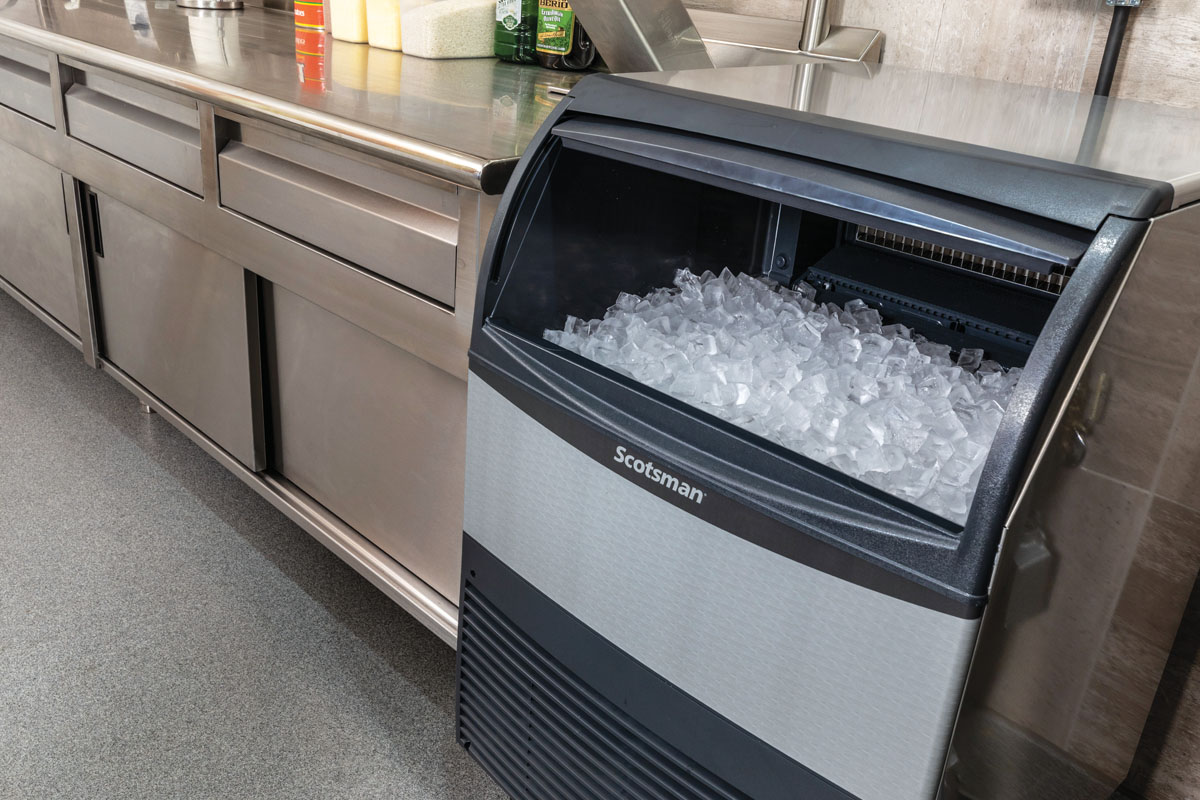
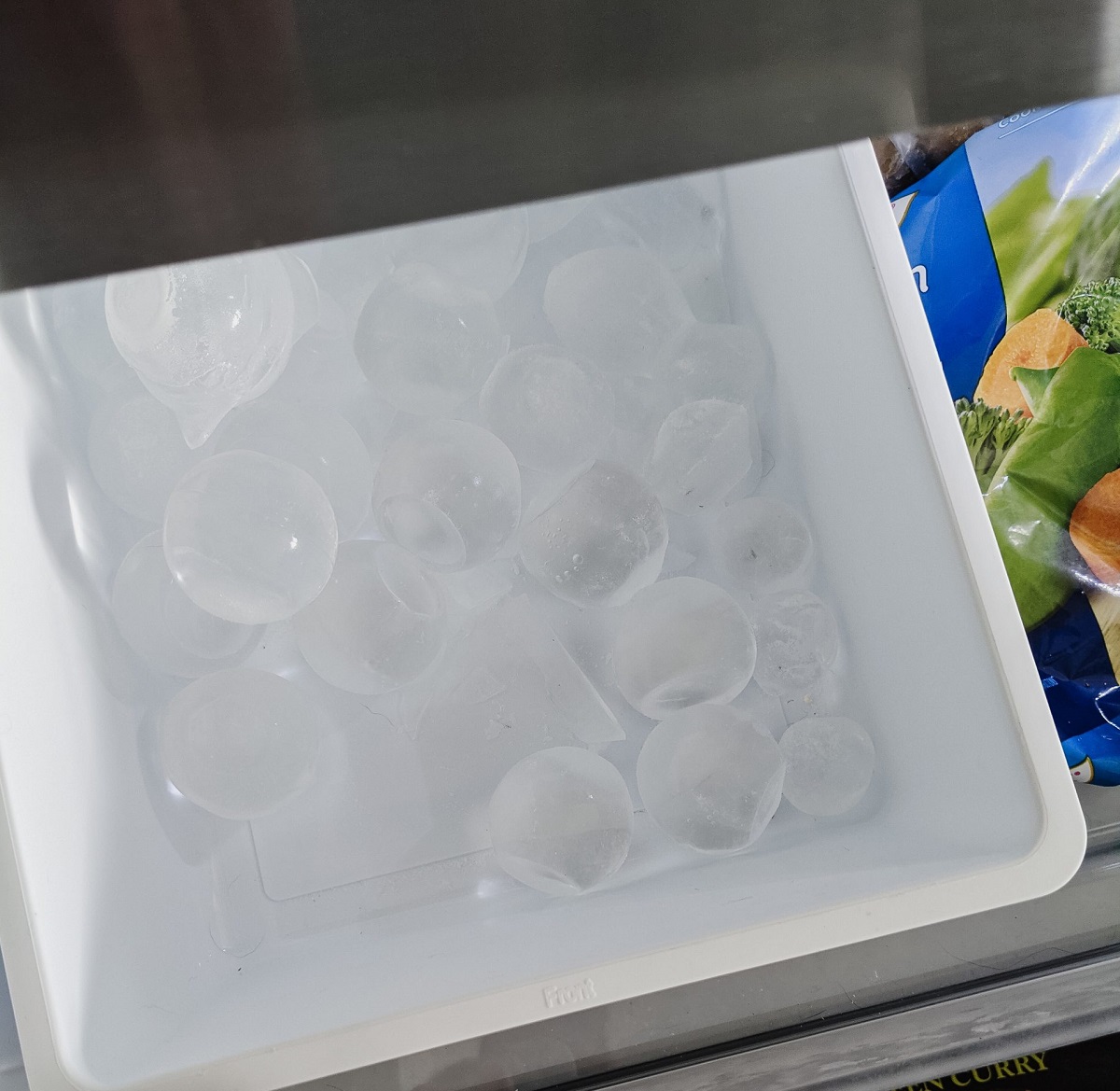
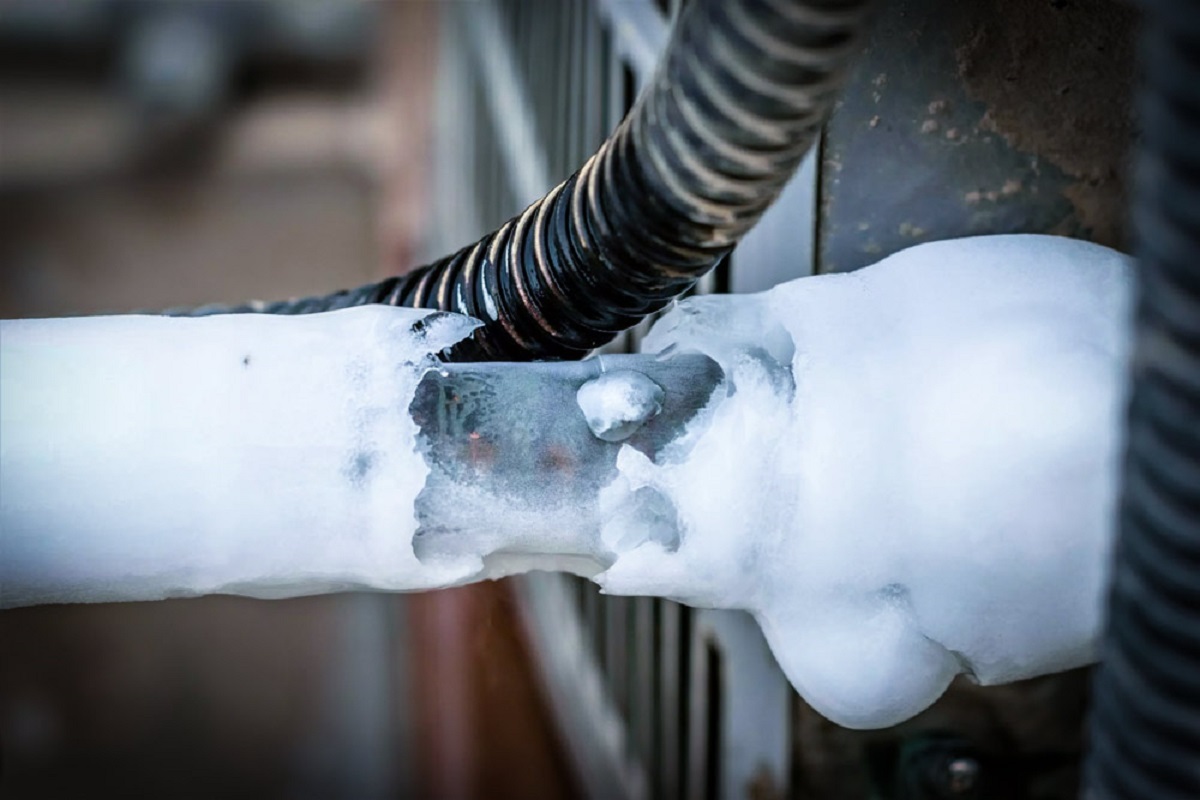
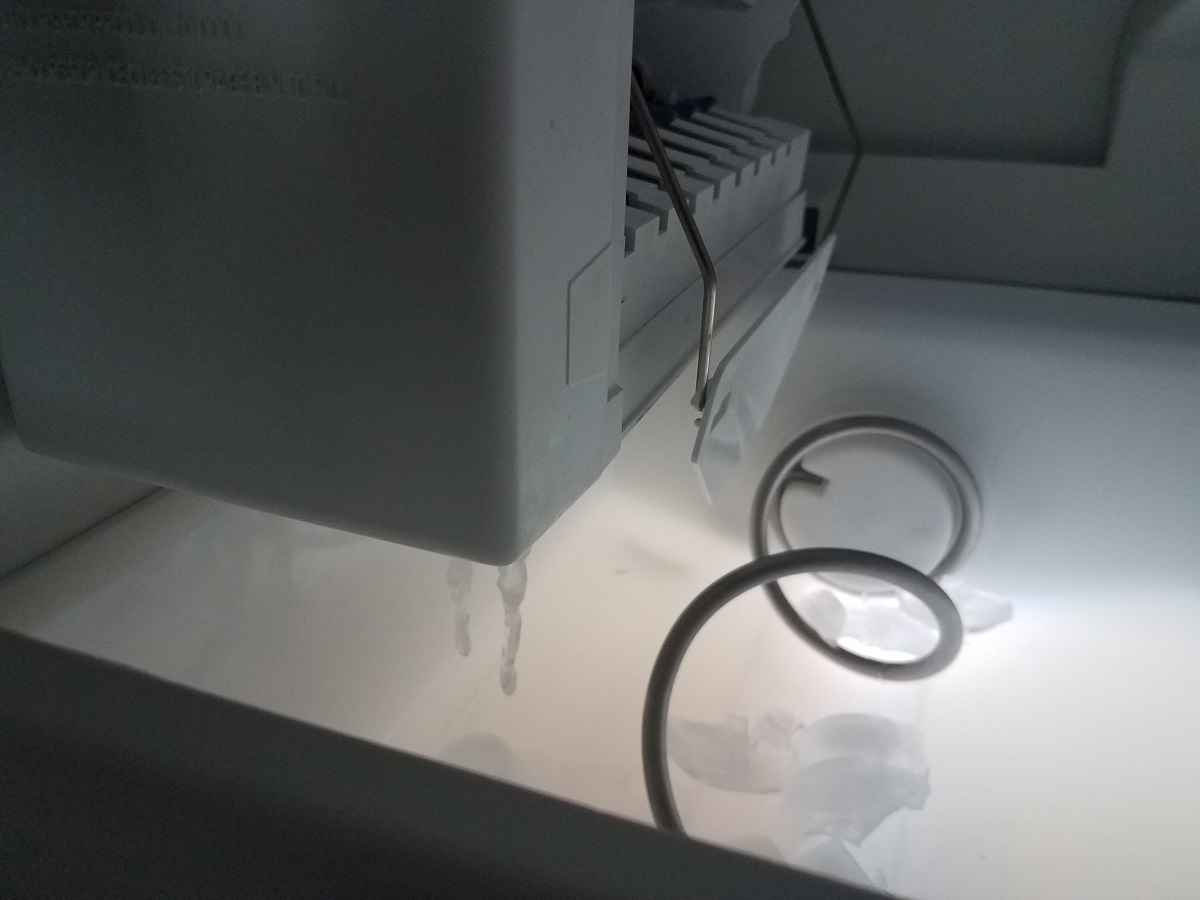
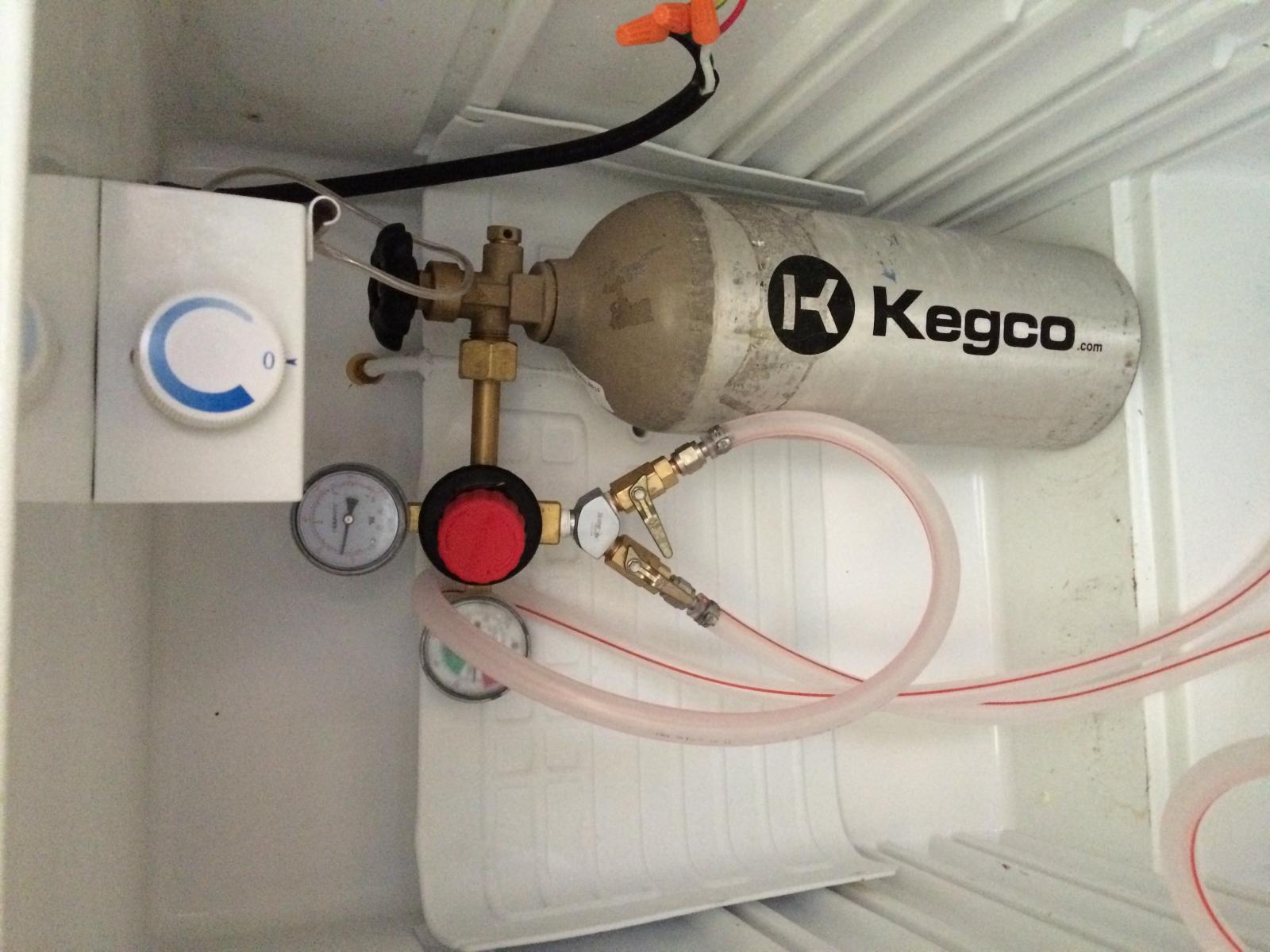
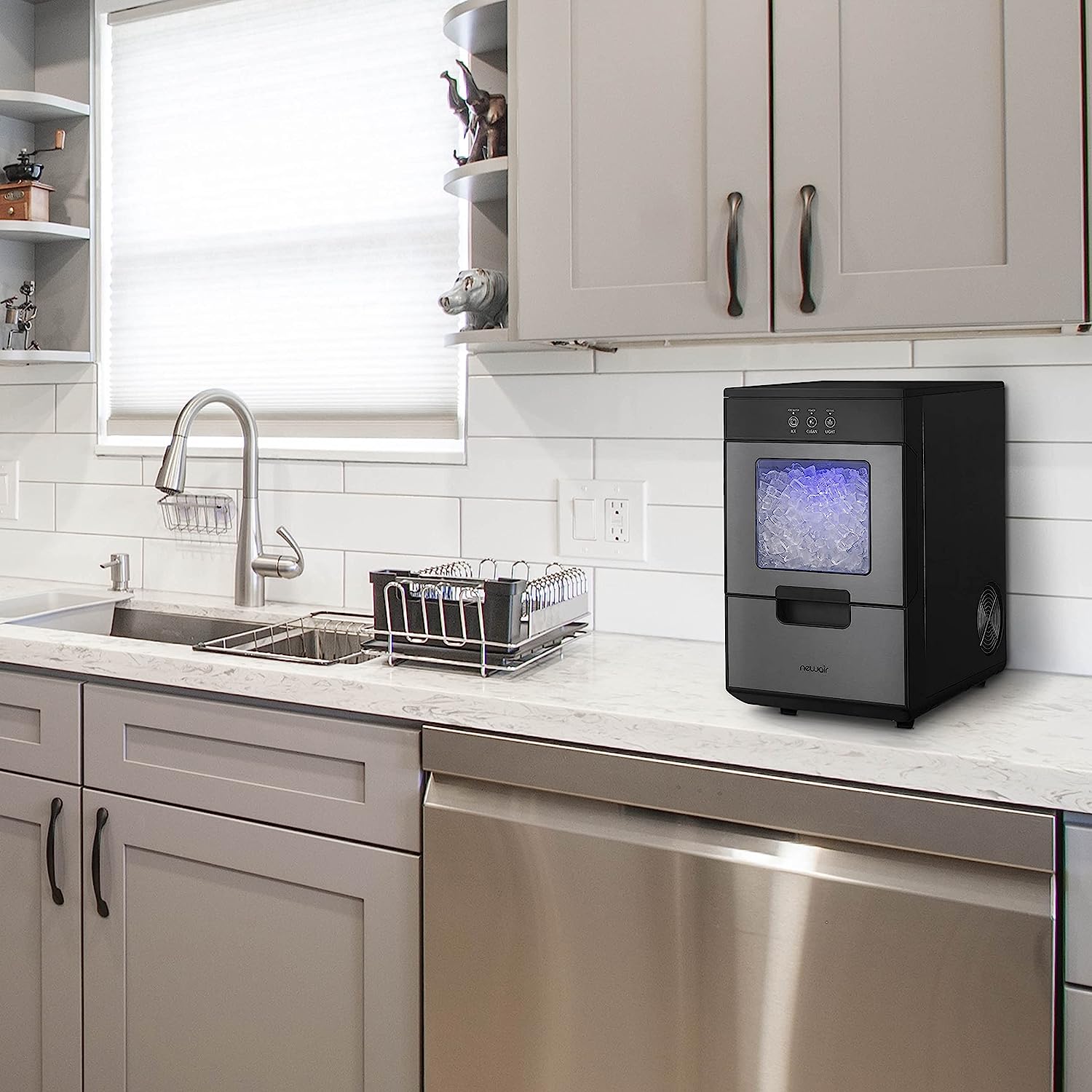
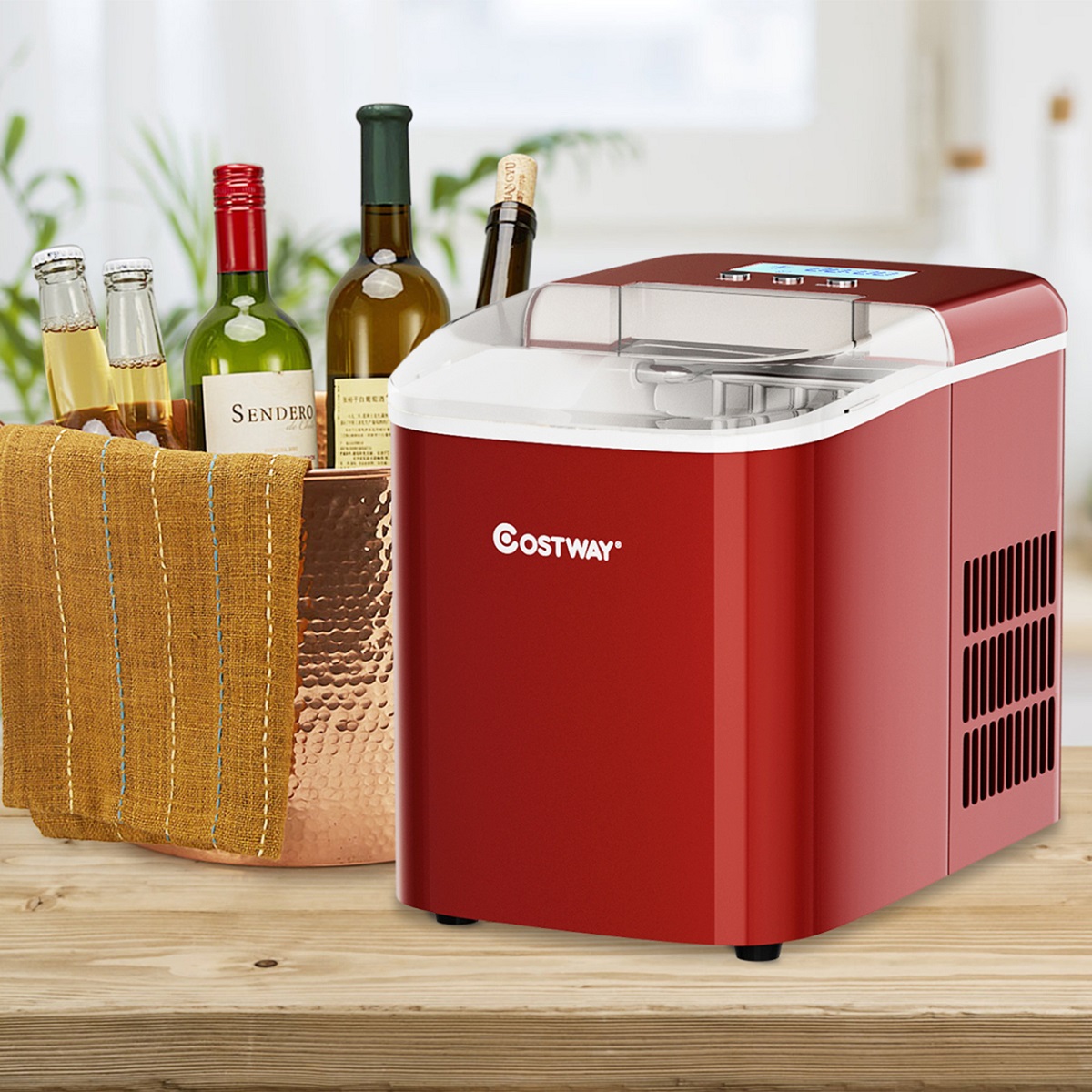
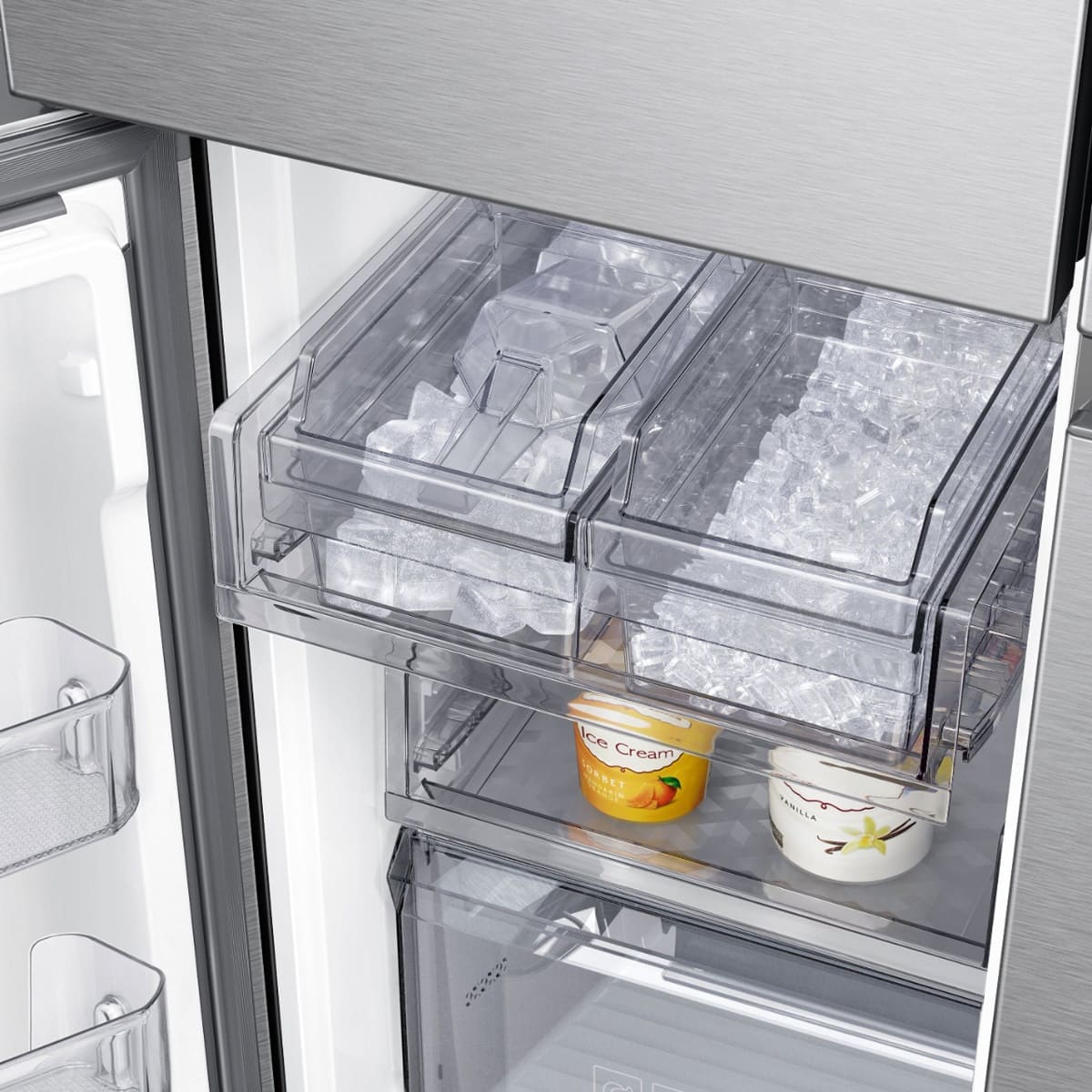
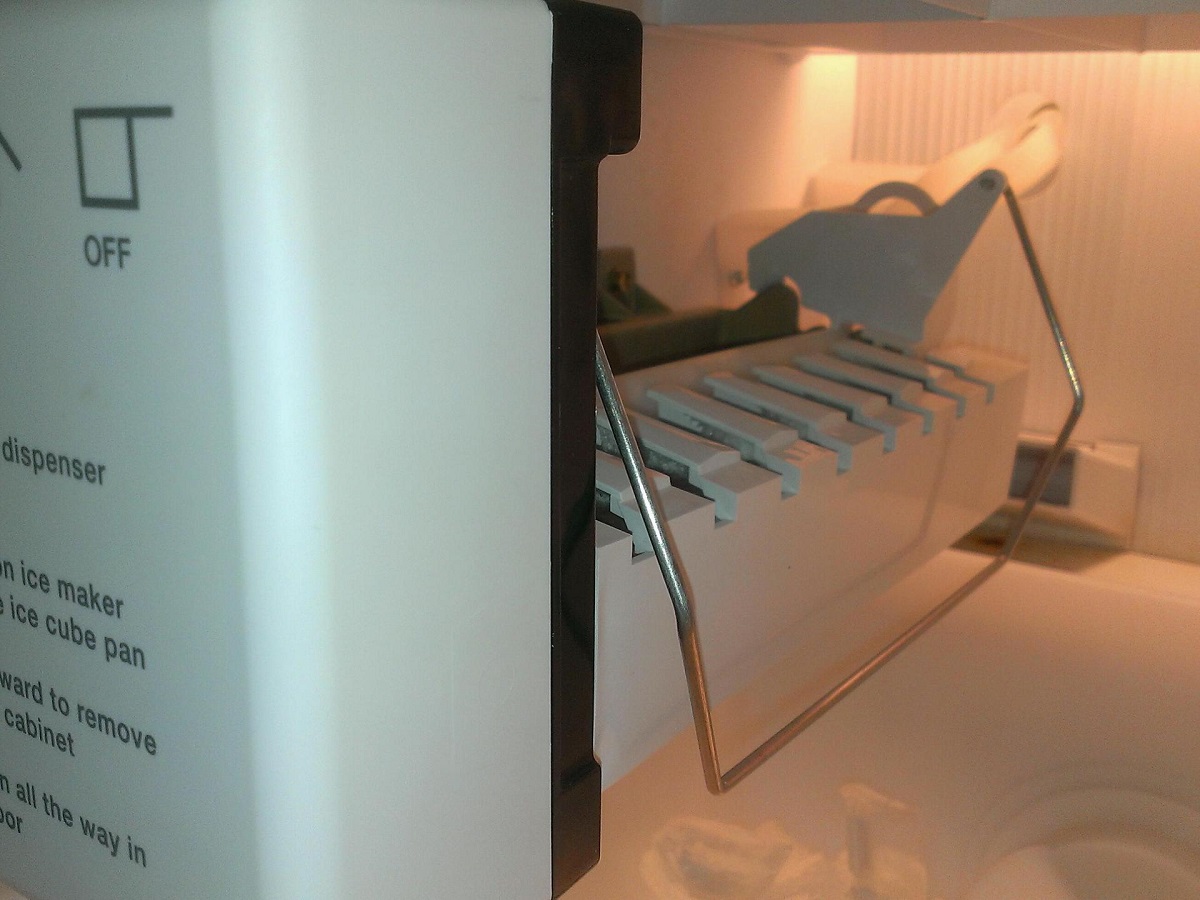
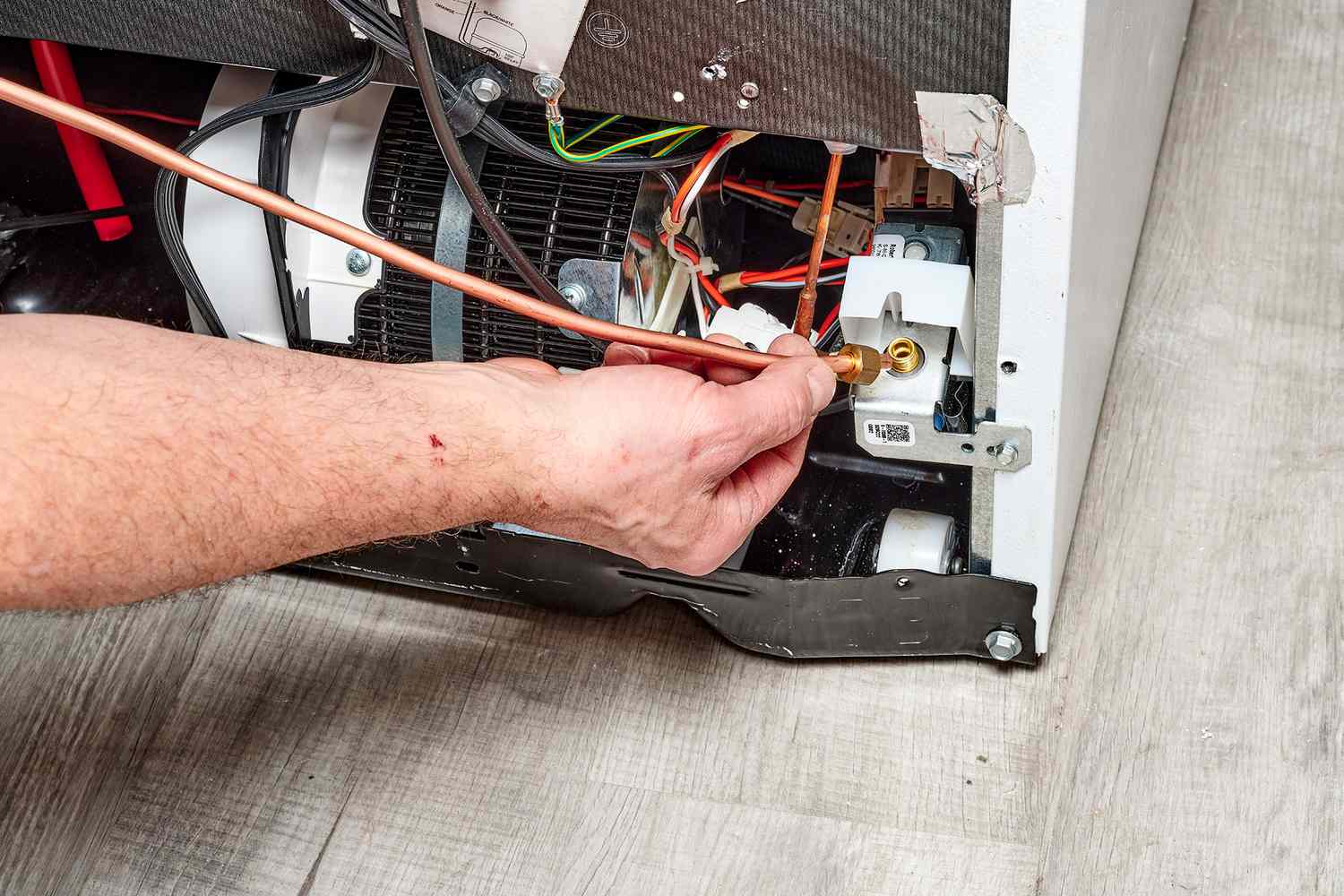
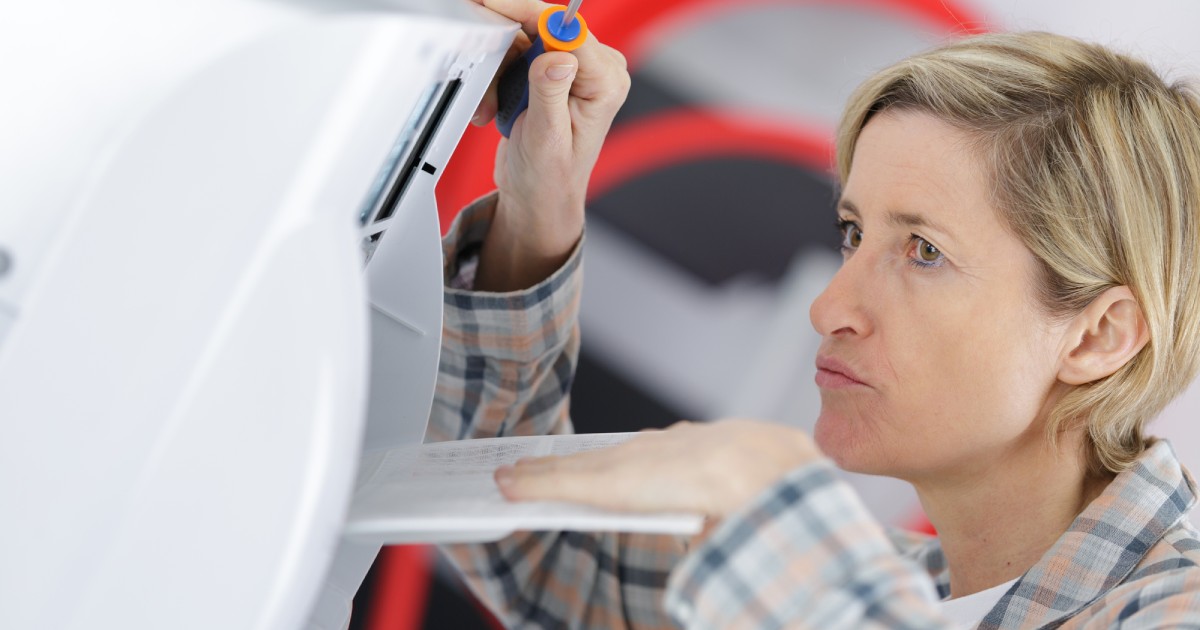
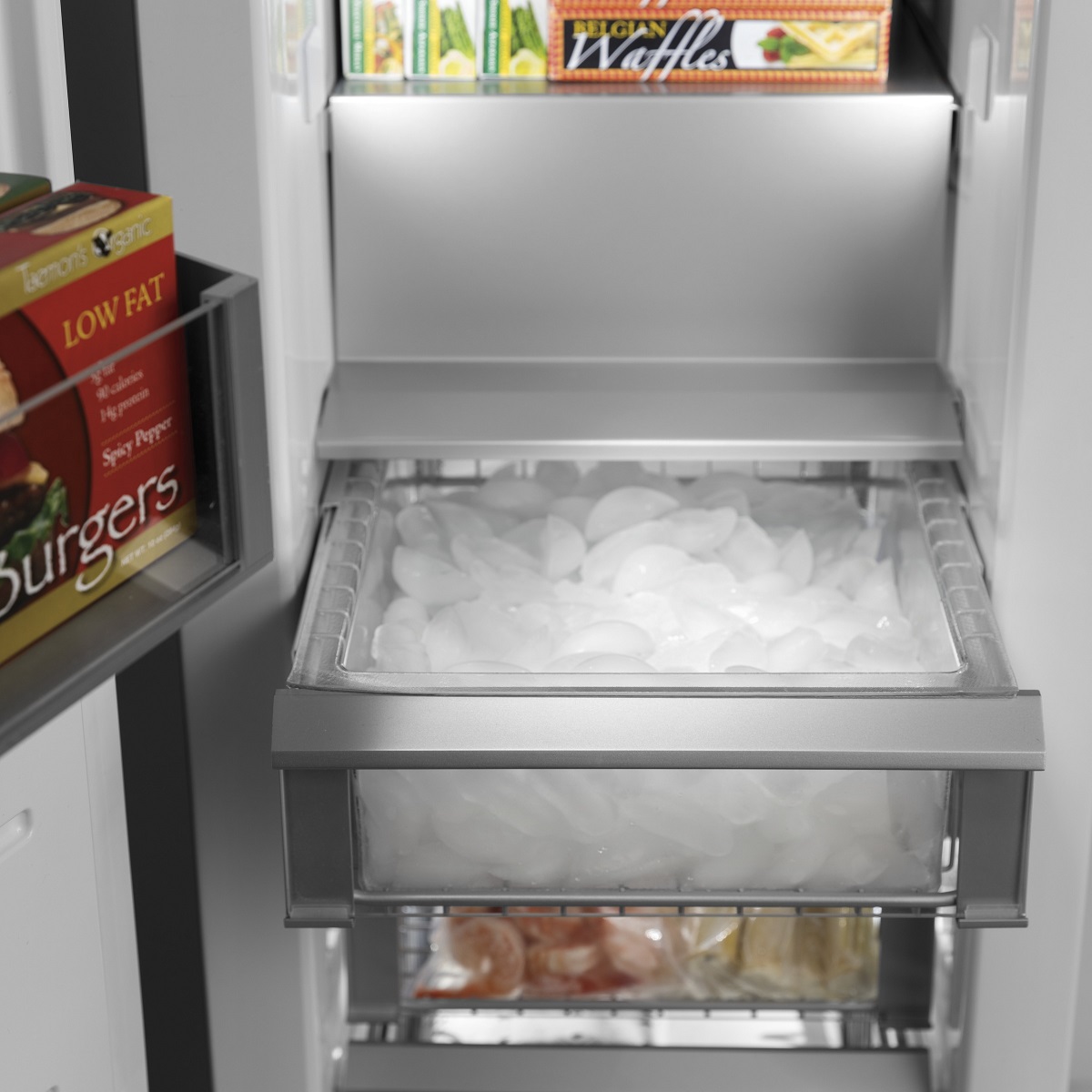

0 thoughts on “What Causes Ice Maker To Freeze Up”